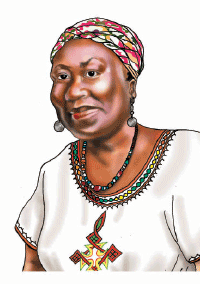Happenstance. Noun. 1. Something that happens by chance; a circumstance especially that is due to chance.
Just the other day it struck me that I had been interested in what one could call the story of two Yalis. The first Yali is the New Guinean man whom Jared Diamond, an American anthropologist, had mentioned in his celebrated book, Guns, Germs and Steel: The Fates of Human Societies (New York: W. W. Norton, 1997). The other Yali is actually YALI, an acronym, standing for US President Barack Obama’s Young African Leaders Initiative. And I kind of found it an interesting happenstance that one of the key programmes of President Obama’s engagement with Africa should coincide with the name of a lowly New Guinean who had asked a very fundamental and pertinent question.
Yali had asked Jared Diamond, who was in New Guinea conducting research, why it was that white men had so much “cargo” while his own people had so little of it. For Yali, cargo represented all the external indicators of affluence possessed by “white men” which clearly show their society as much more developed than his own. Diamond interpreted Yali’s question as dealing ultimately with the division of the world into two basic categories – the Haves and the Have-Nots. And it is in this sense that YALI, I presume, shares the same concern as that of Yali: How to help the Have-Nots of Africa come to possess some more cargo, especially by focusing on the empowerment of the continent’s young population.
So profoundly simple but equally extremely challenging have I found Yali’s question that I too sought to address it in my recent book, Daybreak Nigeria: This Nation Must Rise! (Lagos: Prestige Publishing, 2014). I will just list the chapter titles here for those who might be interested in having a look: 1. What did the slave trade do to Africa and what can Africa do with it? 2. How on earth did others do it? 3. What must we do with ethnicity, religion and culture? 4. How will we redeem our political culture? 5. Where do we go from here? Yali was right: If we continue to spend our nights in darkness and our days in idleness because we lack the power to do our work; if our roads continue to claim so many of our lives regardless of the many prayers we offer never to “walk when the road lies famished”; if millions of our children keep getting churned out of our educational institutions but cannot compete globally because they have not been adequately equipped with the skills and competences presumed by their certificates; if we live constantly in fear of robberies, abductions, and many other forms of violence; then we need more cargo.
But can YALI deliver? What objective does it have that is so fundamentally different from other similar initiatives which have preceded it, like NEPAD, for example? The difference here, of course, is the group targeted – Africa’s teeming young population aptly recognised as a real powerhouse-in-waiting. Thus, the initiative seeks to develop “the next generation of Africa’s civic, government and business leaders” by supporting entrepreneurship and connecting budding entrepreneurs to investors”, and equally promises to “continue to provide young Africans access to resources they can use to put their skills to work in the services of their communities”.
Yali’s question was about “cargo” – the physical and tangible – but we are seriously mistaken if we fail to pay due attention to the whole intangible, underlying system of values and work ethics which make the production of cargo possible. Two important ones to which I would like to draw particular attention are the judicious and efficient use of time, and the existence of a just and fair system of remuneration for the worker. The conduct of our affairs, especially in the public sector, demonstrates how so little value we place on time as a resource. Our government officials launch every inconsequential project with great fanfare, requiring hordes of people to troop to the venue and spend hours awaiting the arrival of constantly tardy dignitaries. I still cannot understand why a minister, a governor, or even the president should not be the first to arrive at the venue of a meeting they have called, or why so many people are required to witness the commissioning of a village well or the ground breaking ceremony of a proposed government housing estate. We find many ways to waste our time and ensure that our productivity is minimal.
The second point, ensuring just and fair remuneration for work done, is almost considered an anathema in our environment. It is as if employers are required NOT to pay their workers just wages, and never to pay on time. And yet, this is one of the foundations of cargo production. It is inconceivable in the developed world that someone would satisfactorily deliver on their own portion of a contract and would have to begin to run after the other party for payment to be made. Trust is a key ingredient in wealth creation, as Francis Fukuyama has shown, and we deceive ourselves if we think we can continue to cheat our workforce and yet succeed in raising the living standards in our society.
We need more cargo, no doubt. One can only hope that YALI will help our young people to focus on those important, underlying issues that are presumed by Yali’s question.











